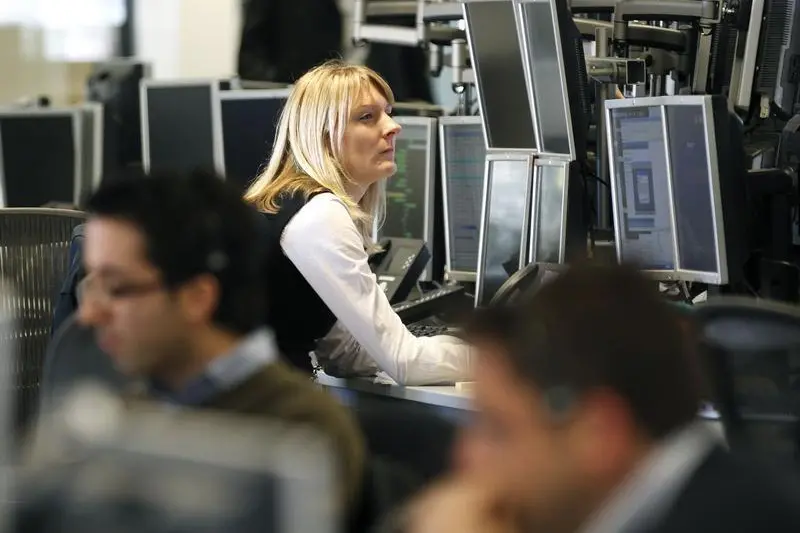PHOTO
LONDON - European shares rose on Tuesday, while the Japanese yen slid to near a one-year low against the dollar after the Bank of Japan's moves towards ending years of massive monetary stimulus underwhelmed some investors.
European shares climbed 0.7% as investors drew comfort from resilient corporate earnings, providing some relief after Asian equities earlier lost ground on renewed fears over the prospects for the Chinese economy following weak manufacturing data.
Real estate and chemical stocks led the gains, though the STOXX 600 is nevertheless poised for its worst monthly performance since September 2022.
The MSCI world equity index, which tracks shares in 47 countries, was last up 0.1%. Wall Street futures gauges pointed to gains of 0.2%.
The yen fell 1.1% against the dollar to touch a session low of 150.76 as the central bank further loosened its grip on long-term interest rates by tweaking its so-called bond yield control policy (YCC).
Last week the yen fell to 150.78, its lowest since October 2022.
Analysts viewed the move by the central bank on Tuesday as a small step towards dismantling the long-running YCC policy.
But the yen fell as traders focused on the BOJ's dovish pledge to "patiently" maintain accommodative policy, and forecast inflation to slow back below 2% in 2025.
"The yen has come off - that's because markets were expecting more," said Close Brothers Asset Management Chief Investment Officer Robert Alster.
The yen also weakened further against the euro, with the single currency up 1.5% to a 15-year high of 160.64.
In government bond markets, the yield on 10-year JGB eased slightly following the announcement but remained at decade-high levels.
Euro zone yields fell as country inflation data pointed to a lower print for the currency bloc overall later in the day. Germany's benchmark 10 year yield fell 5 basis points to 2.77%, testing the previous day's two-week low.
FED IN FOCUS
Asian equities earlier slid as Chinese manufacturing activity returned to contraction, reviving worries over the world's second-largest economy. Recent indicators had showed a nascent recovery in China.
MSCI's broadest index of Asia-Pacific shares outside Japan fell 0.7%, hovering close to the one-year low it touched last week. The index is down 4% in October and on course for a third straight month in the red.
"The disappointing data suggests that the economy is still struggling despite better-than-expected Q3 GDP data reported recently," Deutsche Bank analysts wrote.
Investors are this week focused on major central bank meetings, including those at the U.S. Federal Reserve and Bank of England.
Later on Tuesday, the Federal Open Markets Committee will begin a two-day monetary policy meeting, and is expected to let the Fed funds target rate stand at 5.25%-5.50%.
The U.S. economy remains resilient, recent data showed, and comments from Fed Chair Jerome Powell will be scrutinized to gauge how long interest rates are likely to stay elevated.
The yield on 10-year Treasury notes was up 0.9 basis points at 4.886%.
The dollar index, which measures the U.S. currency against six rivals, was last down 0.1%. The euro looked set to reverse two straight months of losses with a 0.3% gain for October.
The single currency was last up 0.4% at $1.0655.
Oil prices rose as worries over supply stirred by conflict in the Middle East blunted concerns over China. U.S. crude rose 0.8% to $82.24 per barrel and Brent was at $88.24, up 0.9% on the day.
(Reporting by Tom Wilson in London and Ankur Banerjee in Singapore; Editing by Lincoln Feast, Kim Coghill, Miral Fahmy and Jan Harvey)




















